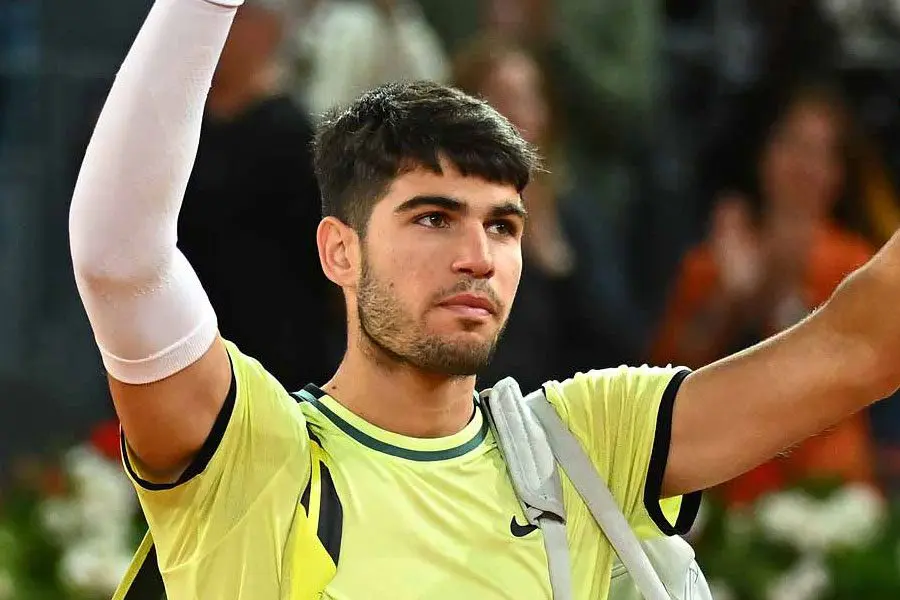The FIFA World Cup is the biggest betting event in all of sport. Bookmakers take billions of bets whenever the finals roll around, and it will be no different for Qatar 2022. Let us show you all there is to know about betting on World Cup football, including which bookmakers are best for gamblers in United States.
2022 World Cup outright odds
Five-time winners Brazil and defending champions Germany head to Russia 2018 as favourites for the title. European heavyweights France and Spain are also well backed, with Argentina and Belgium not far behind.
| +450 | Brazil |
|---|---|
| +500 | France |
| +550 | Germany |
| +600 | Spain |
| +800 | Argentina |
| +850 | Belgium |
| +900 | England |
| +1100 | Italy |
| +1400 | Netherlands |
| +1800 | Portugal |
| +2200 | Croatia |
| +2500 | Colombia, Uruguay |
| +3000 | Chile |
| +4500 | Mexico |
| +6000 | Sweden, United States |
| +6600 | Denmark |
| +7500 | Serbia |
| +8000 | Russia, Switzerland |
| +9000 | Austria, Czech Republic, Paraguay, Poland, Turkey |
See more odds at BetOnline
Best bookmakers for World Cup odds
Online bookmakers experience a massive boom whenever the World Cup is on. We recommend the soccer betting sites below because they are licensed and regulated, offer great odds across thousands of markets and accept gamblers from United States.
How to bet on World Cup football
World Cup bookmakers run hundreds of different betting markets for matches, groups, propositions and future results. Open the tabs below to find out more.
- There are three standard bets for every World Cup game: Team A to win, Team B to win, or the match to end in a draw. Whichever team offers the lowest odds is the favourite.
- Handicap bets level out the odds when one team is heavily backed to beat the other. This is done by giving the outsider a head start of one or more goals, meaning the favourite must overcome that margin in order to beat the handicap. For example: if Brazil have a +2.0 handicap, the bet only pays if they win by two or more goals.
- Correct score bets offer excellent odds, but mostly because they are difficult to pick. For example: if we back Spain to win 3-0, the bet only pays if they score exactly three goals and concede exactly none.
- First goalscorer is one of the most popular player props on offer, but bookies also run markets for last goalscorer, anytime goalscorer, braces, hat-tricks, and any number of special bets.
- Many match bets are also available for the first half and the second half in isolation. Instead of betting on the end result of a game between Germany and Mexico, for instance, we can instead wager that the score will be 0-0 at half-time.
- Double bets offer big odds for backing two outcomes at once. Popular markets include half-time/full-time result, total goals/match result and first goalscorer/match result.
- You can bet on just about every aspect of a World Cup game. Football exotics cover hundreds of separate outcomes within a match, including the number of corner kicks won, the number of yellow cards shown and whether any penalties are awarded.
- World Cup outright markets are available within days of the previous tournament’s conclusion. Besides title betting, bookies offer futures odds on group winners, stage of elimination, top tournament goalscorer and player of the tournament.
About the Fifa World Cup
The FIFA World Cup was first staged in 1930. Until then, the Olympics were considered the international championships of association football. Hosting rights for the maiden tournament were awarded to Uruguay, who had won the gold medal at Amsterdam 1928. Only 13 nations made the trip to Montevideo, where the Uruguayans defeated Argentina in the final to win the inaugural World Cup.
The 1934 World Cup in Italy was the first where teams had to qualify. Out of 32 participating nations, 16 reached the finals tournament. Not among them were Uruguay, who boycotted the event because only four European teams had travelled to South America in 1930. The Italians won on home soil, but the tournament was marred by allegations of severe corruption on the part of Benito Mussolini’s fascist dictatorship.
The next World Cup was an even more fractious affair. Instead of returning to South America, the 1938 tournament was held in France. That decision led to the withdrawal of both Argentina and Uruguay, then two of the world’s strongest football teams. Spain could not compete because of the Spanish Civil War, while Austria pulled out after the nation was annexed by Nazi Germany. Brazil, Cuba and the Dutch East Indies (Indonesia) were the only non-European teams in attendance as Italy defended their title.
After a 12-year hiatus due to World War II, the World Cup was reborn in Brazil in 1950. The tournament has taken place every four years since then, gradually expanding to include more and more teams from all over the world. The finals field grew from 16 to 24 for Spain 1982, and then to 32 teams for France 1998 and beyond.
World Cup records and stats
- Eight different nations have won the World Cup, and six of those have done it on multiple occasions. Of the 20 World Cups staged from 1930 to 2014, the host nations have won six. Brazil and Spain are the only two winners who have never managed the feat on home soil.
Brazil 1958, 1962, 1970, 1994, 2002 Germany 1954, 1974, 1990, 2014 Italy 1934, 1938, 1982, 2006 Uruguay 1930, 1950 Argentina 1978, 1986 France 1998, 2018 England 1966 Spain 2010 - Only a handful of players have scored more than 10 goals at the World Cup. France’s Just Fontaine holds the record for most goals at a single tournament, having netted 13 times in six outings at Switzerland 1954.
Miroslav Klose (Germany) 16 goals, 24 games Ronaldo (Brazil) 15 goals, 19 games Gerd Muller (West Germany) 14 goals, 13 games Just Fontaine (France) 13 goals, six games Pele (Brazil) 12 goals, 14 games Sandor Kocsis (Hungary) 11 goals, five games Jurgen Klinsmann (Germany) 11 goals, 17 games - In 2018, Mexico’s Rafael Marquez joined fellow countryman Antonio Carbajal and German legend Lothar Matthaus as one of only three to have played in five World Cups. Long-serving Italy goalkeeper Gianluigi Buffon also attended five finals tournaments, but he did not take the field at France 1998.
Only six players have appeared in more than 20 matches at the World Cup:
Lothar Matthaus (Germany) 25 matches, 1982-1988 Miroslav Klose (Germany) 24 matches, 2002-2014 Paolo Maldini (Italy) 23 matches, 1988-2000 Uwe Seeler (West Germany) 21 matches, 1958-1970 Diego Maradona (Argentina) 21 matches, 1978-1994 Wladyslaw Zmuda (Poland) 21 matches, 1974-1986 - Since Spain 1982, the Adidas Golden Ball is awarded to the standout player of the World Cup finals tournament. A Silver Ball and Bronze Ball are also given to the runner-up and third-placed candidates.
Spain 1982
Paolo Rossi (Italy)
Falcao (Brazil)
Karl-Heinz Rummenigge (West Germany)Mexico 1986
Diego Maradona (Argentina)
Harald Schumacher (West Germany)
Preben Elkjaer Larsen (Denmark)Italy 1990
Salvatore Schillaci (Italy)
Lothar Matthaus (Germany)
Diego Maradona (Argentina)USA 1994
Romario (Brazil)
Roberto Baggio (Italy)
Hristo Stoichkov (Bulgaria)France 1998
Ronaldo (Brazil)
Davor Suker (Croatia)
Lillian Thuram (France)Japan/Korea 2002
Oliver Kahn (Germany)
Ronaldo (Brazil)
Hong Myung-bo (South Korea)Germany 2006
Zinedine Zidane (France)
Fabio Cannavaro (Italy)
Andre Pirlo (Italy)South Africa 2010
Diego Forlan (Uruguay)
Wesley Snijder (Netherlands)
David Villa (Spain)Brazil 2014
Lionel Messi (Argentina)
Thomas Muller (Germany)
Arjen Robben (Netherlands)Russia 2018
Luka Modric (Croatia)
Eden Hazard (Belgium)
Antoine Griezmann (France) - The Golden Boot, formerly the Golden Shoe, is given to the top-scoring player at the World Cup. Although the accolade was introduced in 1982, all top-scorers dating back to 1930 are loosely referred to as Golden Boot winners. As per the Golden Ball, silver and bronze are awarded for second and third place.
Uruguay 1930
Guillermo Stabile (Argentina) – eight goals
Pedro Cea (Uruguay) – five goals
Bert Patenaude (USA) – four goalsItaly 1934
Oldrich Nejedly (Czechoslovakia) – five goals
Edmund Conen (Germany), Angelo Schiavio (Italy) – four goalsFrance 1938
Leonidas (Brazil) – seven goals
Gyorgy Sarosi (Hungary), Gyula Zsengeller (Hungary), Silvio Piola (Italy) – five goalsBrazil 1950
Admeir (Brazil) – eight goals
Oscar Miguez (Uruguay) – five goals
Alcides Ghiggia (Uruguay), Chico (Brazil), Estanislau Basora (Spain), Telmo Zarra (Spain) – four goalsSwitzerland 1954
Sandor Kocsis (Hungary) – 11 goals
Josef Hugi (Switzerland), Max Morlock (West Germany), Erich Probst (Austria) – six goalsSweden 1958
Just Fontaine (France) – 13 goals
Pele (Brazil), Helmut Rahn (West Germany) – six goalsChile 1962
Florian Albert (Hungary), Valentin Ivanov (USSR), Garrincha (Brazil), Vava (Brazil), Drazan Jerkovic (Yugoslavia), Leonel Sanchez (Chile) – four goalsEngland 1966
Eusebio (Portugal) – nine goals
Helmut Haller (West Germany) – six goals
Franz Beckenbauer (Germany), Ferenc Bene (Hungary), Geoff Hurst (England), Valeriy Porkujan (USSR) – four goalsMexico 1970
Gerd Muller (West Germany) – 10 goals
Jairzinho (Brazil) – seven goals
Teofilo Cubillas (Peru) – five goalsWest Germany 1974
Grzegorz Lato (Poland) – seven goals
Andrzej Szarmach (Poland), Johan Neeskens (Netherlands) – five goalsArgentina 1978
Mario Kempes (Argentina) – six goals
Teofilo Cubillas (Peru), Rob Rensenbrink (Netherlands) – five goalsSpain 1982
Paolo Rossi (Italy) – six goals
Karl-Heinz Rummenigge (West Germany) – five goals
Zico (Brazil) – four goalsMexico 1986
Gary Lineker (England) – six goals
Emilio Butragueno (Spain), Careca (Brazil), Diego Maradona (Argentina) – five goalsItaly 1990
Salvatore Schillaci (Italy) – six goals
Tomas Skuhravy (Czechoslovakia) – five goals
Roger Milla (Cameroon) – four goalsUSA 1994
Hristo Stoichkov (Bulgaria), Oleg Salenko (Russia) – six goals
Kennet Anderssen (Sweden), Romario (Brazil) – five goalsFrance 1998
Davor Suker (Croatia) – six goals
Gabriel Batistuta (Argentina), Christian Vieri (Italy) – five goalsJapan/Korea 2002
Ronaldo (Brazil) – eight goals
Miroslav Klose (Germany), Rivaldo (Brazil) – five goalsGermany 2006
Miroslav Klose (Germany) – five goals
Hernan Crespo (Argentina) – three goals
Ronaldo (Brazil) – three goalsSouth Africa 2010
Thomas Muller (Germany) – five goals
Wesley Sneijder (Netherlands) – five goals
David Villa (Spain) – five goalsBrazil 2014
James Rodriguez (Colombia) – six goals
Thomas Muller (Germany) – five goals
Neymar (Brazil) – four goalsRussia 2018
Harry Kane (England) – six goals
Antoine Griezmann (France) – four goals
Romelu Lukaku (Belgium) – four goals















swtserland over spain 2 nil 2022 world cup